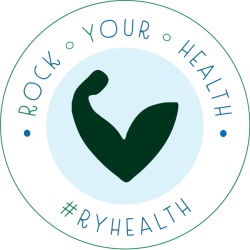The Sustainabiliy Project, Project Presentation
The RYHEALTH Sustainability Project
Reducing waste, conserving natural resources, and promoting environmental responsibility among students and teachers.

The Sustainability Project is one of the four key pillars of the RYHEALTH initiative. It focuses on reducing waste, conserving natural resources, and promoting environmental responsibility among students and teachers.
The Sustainability Project - Promoting Environmental Responsibility among students and teachers.
The Role of a Healthy Environment in Human Development
A healthy environment is essential for human health and development. Research shows that contact with nature and physical activity have a strong positive impact on children’s cognitive, behavioral, and mental well-being.
Nature Contact Where Children Live, Play, and Learn
Children benefit most from nature when it is part of their daily environments - where they live, play, and learn. Regular interaction with green spaces supports physical and mental health, helps prevent disease, and promotes health equity.
A Deep Connection to Nature
As humans, we are part of nature and depend on its richness. From clean air and water to emotional balance and joy, nature provides countless benefits. Therefore, it is our shared responsibility to care for animals, plants, landscapes, and natural resources - for the sake of future generations.
Fostering Environmental Awareness in Children
We must inspire a love of nature in our children by giving them opportunities to explore, engage with, and protect the environment. Early experiences in nature help children grow into responsible, environmentally conscious adults.
The Sustainability Project: A Core Pillar of RYHEALTH
The Sustainability Project is one of the four central components of the RYHEALTH initiative. It plays a key role in improving long-term health outcomes by promoting environmental stewardship and sustainable living practices.
Focus Areas of the Project
The project aims to reduce waste, conserve natural resources, and encourage environmental responsibility among students and teachers alike. By embedding these values into everyday school life, the project fosters a culture of sustainability.
Integrating Sustainability into Education
Sustainability principles are incorporated into school curricula to help prepare students for a future where sustainable living is not just a choice, but a necessity. Through hands-on learning, students understand the impact of their actions on the environment.
Teacher Training for a Greener Future
An important part of the project is teacher training. Educators are equipped with tools and knowledge to create a sustainability-focused school culture and guide students in becoming environmentally aware citizens.
Building a Better Tomorrow
Together, through education, awareness, and daily action, we can build a healthier, more sustainable future for everyone.
Authors:
Petra Thaller, OAC
Michaela Wiese, CdM
Rui Pedro Luzio & Eunice São José, AEAnadia
A healthy environment is essential for human health and development. Research shows that contact with nature and physical activity have a strong positive impact on children’s cognitive, behavioral, and mental well-being.
Nature Contact Where Children Live, Play, and Learn
Children benefit most from nature when it is part of their daily environments - where they live, play, and learn. Regular interaction with green spaces supports physical and mental health, helps prevent disease, and promotes health equity.
A Deep Connection to Nature
As humans, we are part of nature and depend on its richness. From clean air and water to emotional balance and joy, nature provides countless benefits. Therefore, it is our shared responsibility to care for animals, plants, landscapes, and natural resources - for the sake of future generations.
Fostering Environmental Awareness in Children
We must inspire a love of nature in our children by giving them opportunities to explore, engage with, and protect the environment. Early experiences in nature help children grow into responsible, environmentally conscious adults.
The Sustainability Project: A Core Pillar of RYHEALTH
The Sustainability Project is one of the four central components of the RYHEALTH initiative. It plays a key role in improving long-term health outcomes by promoting environmental stewardship and sustainable living practices.
Focus Areas of the Project
The project aims to reduce waste, conserve natural resources, and encourage environmental responsibility among students and teachers alike. By embedding these values into everyday school life, the project fosters a culture of sustainability.
Integrating Sustainability into Education
Sustainability principles are incorporated into school curricula to help prepare students for a future where sustainable living is not just a choice, but a necessity. Through hands-on learning, students understand the impact of their actions on the environment.
Teacher Training for a Greener Future
An important part of the project is teacher training. Educators are equipped with tools and knowledge to create a sustainability-focused school culture and guide students in becoming environmentally aware citizens.
Building a Better Tomorrow
Together, through education, awareness, and daily action, we can build a healthier, more sustainable future for everyone.
Authors:
Petra Thaller, OAC
Michaela Wiese, CdM
Rui Pedro Luzio & Eunice São José, AEAnadia
